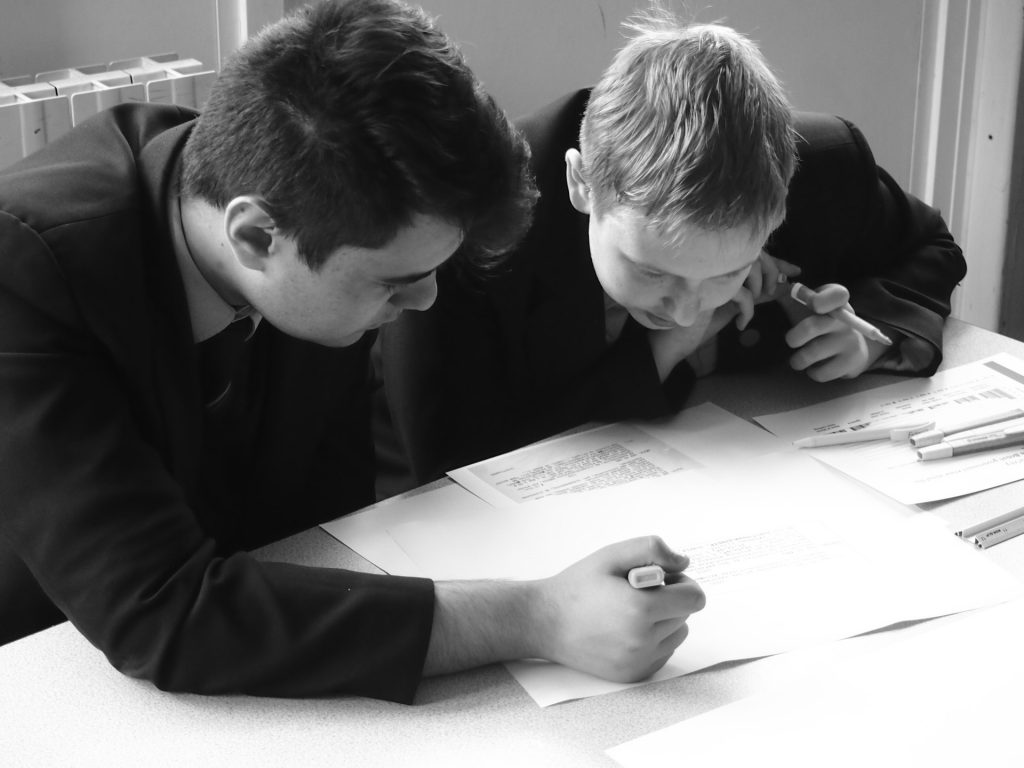27 January 2014
By Paul Salmons
In classrooms, assemblies and public events across the country today young people have been gathering at events to commemorate the Holocaust. Candles are being lit, poems read, pledges made.
For many, particularly those privileged to hear from Holocaust survivors or, increasingly, survivors of other genocides, it will be an intensely moving experience. But what are students remembering, exactly? What do they know and understand about the Holocaust, and what meanings do they make?
Despite years of educational work in teaching and learning about the Holocaust, the intensive activity of many specialist institutions and the dedication of thousands of teachers, the simple (but somewhat troubling) answer is that we don’t really know what young people think about this complex and emotive subject.
Of course, we have the essays, artwork, musical and theatrical performances that many school students produce for these occasions. The messages inscribed into memorial books. The comments made to teachers, guest speakers and the organisers of these events. All of this certainly tells us something. But we also know that young people learn very early on how to “get by” in school: the importance of saying what your teacher wants to hear, what kinds of comments and behaviour gain praise and which are out of bounds, and what will gain acceptance among your peers. Different settings can produce different kinds of responses; different ideas may be expressed in the classroom to a teacher, at a podium to an audience, in the playground to friends, or at home to family members.
And a wide range of sources inform and shape the views and attitudes of our students. There is no reason to assume that the voice of the teacher or the narrative of a textbook holds sway over the opinions of friends and family, or the popular representations of the past encountered in film and television, museums and novels.
So what do our young people know about why and how the Holocaust happened? What does this mean to them – what is the relevance and meaning for their lives, and are there common misconceptions or areas of confusion?
This picture is about to become a lot clearer.
A new research project launched by the IOE’s Centre for Holocaust Education will explore the knowledge, attitudes and understanding of up to 10,000 secondary school pupils from across England. Unprecedented in scope and scale, this ground breaking study will provide the fullest picture yet of what the Holocaust actually means to young people by listening to students themselves, through large-scale and in-depth research into their thinking.
The findings of the research, funded by the Department for Education together with the Pears Foundation, will be of importance both in the UK and internationally. It will reveal patterns in students’ knowledge, as well as common preconceptions, myths, or areas of confusion and inaccuracy. It will help identify issues and challenges that need to be tackled in the classroom. And it will clarify the meaning and significance attached to the Holocaust by the next generation.
The research into students’ understandings is part of our commitment to working with teachers to transform teaching and learning about the Holocaust. It follows our 2009 national research into teachers’ attitudes to teaching about the Holocaust, the foundation of all our current work, and the basis of a research-informed approach that makes our programmes uniquely responsive to classroom needs.
The student research will allow the IOE’s Centre for Holocaust Education to further improve its CPD programmes (already offered free of charge to teachers across the country), and to develop even more effective resources and approaches to teaching about the Holocaust.
As a result, it is to be hoped that in future years, as students across the country again mark our national Holocaust Memorial Day, they will do so with ever more sophisticated and nuanced understandings and that the meanings they form as they join in collective acts of memory will be even deeper, more personal and more profound.

 Close
Close


